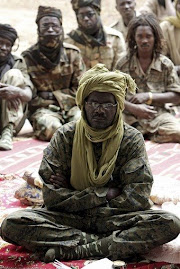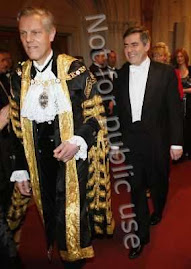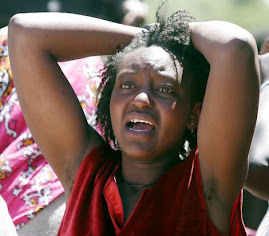As long as the differences and diversities of mankind exist, democracy must allow for compromise, for accommodation, and for the recognition of differences – Eugene McCarthy
In the previous features, "Integral" discussed the lack of democratic principles in South Sudan and how such disunite the people of South Sudan. It observed the values or pillars of democracy: sovereignty of the people; government based upon consent of the governed; majority rule; minority rights; guarantee of basic human rights; free and fair elections; equality before the law; due process of law; constitutional limits on government; social, economic, and political pluralism; values of tolerance, pragmatism, cooperation, and compromise, (http://usinfo.state.gov/products/pubs/whatsdem/whatdm2.htm).
It promised to look into each one of these pillars. It has already examined "sovereignty of the people" and "government based upon consent of the governed." Today, it is looking at "majority rule."
Majority has many meanings but for the purpose of this column, "Integral" will choose one of the meanings: popularity to suit the argument. Rule, like majority, has many meanings too but again for the purpose of this column, it will choose two: authority and government. Thus, majority rule could be described as a popular authority or government (of a political party) elected into power by the people; and that it has won more seats – 51% and above in parliament and forms a government or rules the country. This normally takes place in countries that exercise democracy and embrace its pillars as the basis for continuity and survival in modern politics.
Majority rule is a decision rule that makes one of two alternatives the "winner", based on which has more than half the votes. It is notable in that it is the binary decision rule used most often in influential decision-making bodies, including the legislatures of democratic nations. Some people have recommended against the use of majority rule, at least under certain circumstances, due to an alleged trade-off between the benefits of majority rule and other values important to democracy. Most famously, it has been feared that majority rule leads to a "tyranny of the majority", and the use of supermajoritarian rules have been recommended in its place. However, some voting theorists have argued that these fears are unfounded and majority rule may actually be the best rule to protect minorities (http://en.wikipedia.org/wiki/Majority_rule).
As one of the democratic pillars, majority rule is practiced in the Government of South Sudan (GoSS). SPLM has 70% of power in South Sudan's legislature, executive and a little more than 70% in the judiciary; and 100% in SPLA. This was provided for by the CPA. However, this overwhelming majority rule by SPLM has been seen showing serious symptoms of tyranny of the majority. The questions that could be asked in order to link majority rule up to this column's main focus – disunity in South Sudan – are: could tyranny of the majority help the people of the South to unite? If not, why not?
The SPLM as a majority ruling party in South Sudan came to power through a protracted liberation struggle. It is trying its best to behave like a non-corrupt and civilized government and to accommodate all South Sudanese into GoSS. The policy of GoSS, like that of any modern government in this contemporary era, should be to create job opportunities and offer employment to all the South Sudanese irrespective of their various social setups. This 'should-be' policy, however, has been seriously damaged by few individuals within GoSS who think that tribalism and nepotism – corruption in general indeed – form the basis for establishing GoSS and the modern state of the South.
These corrupt individuals have always said that they are the majority in the South and corrupt or not they are there to stay. As a result, there are no equal opportunities for employment for South Sudanese.
More so, some South Sudanese have suffered under the GoSS and its affiliated organs as well as the SPLM. Innocent people under the leadership of GoSS have been killed, tortured, robbed of their lands, you name it.
By and large these corrupt individuals have been taking the law into their own hands. This kind of behaviour whether or not it is practiced by individuals or majority of people within the GoSS means nothing but application of tyranny by majority SPLM members in GoSS, including SPLA.
This tyrannical behaviour has clearly given an impression to the South Sudanese that GoSS is not a government for all. This kind of attitude has alienated many South Sudanese from GoSS and so it has caused the GoSS its serious efforts of trying to unite the people of South Sudan and behave like a modern government. Thus, it means that tyranny of the majority in GoSS cannot help the unity of South Sudanese। Inequality of any nature in any nation could be a direct cause of disunity, let alone being a direct source of conflict.
To ensure that the majority rule of SPLM and any other party in future in South Sudan protects the minority rights, GoSS may need a body charged with the protection of minority rights। This body should ensure that there are no infringements of any kind into the rights of the minority in South Sudan. It should also develop awareness programmes that should educate all the political parties in South Sudan on the importance of respecting human rights in general. The unity of the people of South Sudan would not become a reality until when the majority learns to hear the voice of the minority and regard it as that of an equal.
Majority rule perceives all voices as equal. This presupposes an abstraction of all concrete relationships in which a decision-maker is involved: (a) it matters not if someone is 5’7“ or six-foot-three or fat or thin; (b) irrelevant if you come from a distinguished family or a rich one or one that exercises political influence; (c) immaterial your educational background or literacy; (d) you can be 60 or 30 years of age; (e) neither your occupation nor your employment or marital status or the fact of children or not is of any importance whatsoever; (f) and it is completely beside the point what you may or may not have achieved in your life and your personal prestige or lack thereof. Majority rule is a radical principle that makes all voters equal. The extent of this equality becomes more abstruse the greater the social, economic and cultural differences among voters. This equality is no mere fiction, for there are real consequences involved ― namely resolutions. But all this applies to a definite sphere of social life, namely the political one, (http://en.wikipedia.org/wiki/Majority_rule.
"Integral" believes that the majority within the SPLM/A – those who went to fight for a genuine cause of South Sudan – shall prevail over those corrupt individuals who only think for themselves and not the people of South Sudan. South Sudan is home for all: the good, the bad, and the ugly. Democracy, which every nation aspires to practice better than other nations and within which majority rule is based, accommodates the good, the bad and the ugly. It uses the rule of law to contain the bad and the ugly in behaviours but not in appearance. Majority rule in South Sudan should thus respect the good, the bad and the ugly in appearance because each has valued vote as the other.
















No comments:
Post a Comment